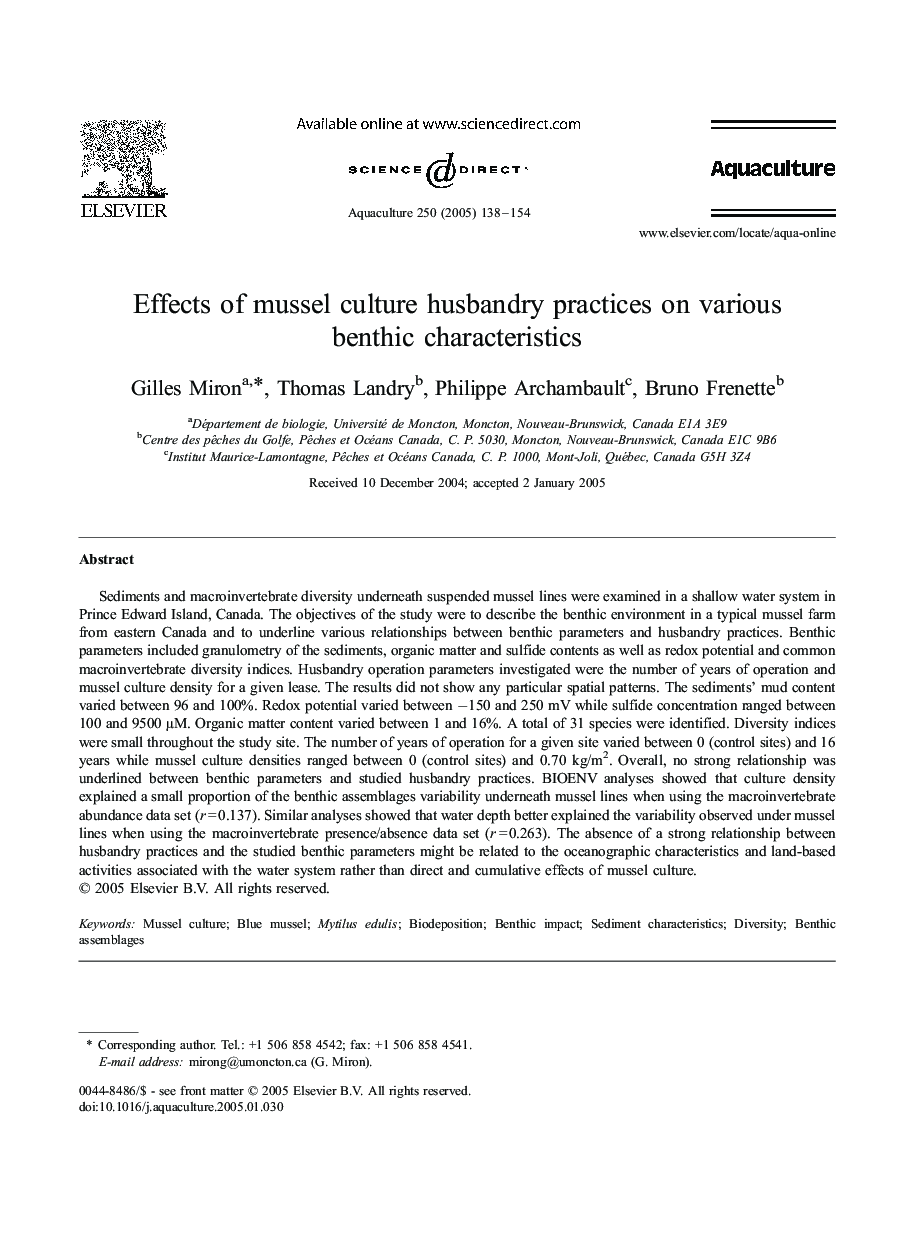| Article ID | Journal | Published Year | Pages | File Type |
|---|---|---|---|---|
| 8974598 | Aquaculture | 2005 | 17 Pages |
Abstract
Sediments and macroinvertebrate diversity underneath suspended mussel lines were examined in a shallow water system in Prince Edward Island, Canada. The objectives of the study were to describe the benthic environment in a typical mussel farm from eastern Canada and to underline various relationships between benthic parameters and husbandry practices. Benthic parameters included granulometry of the sediments, organic matter and sulfide contents as well as redox potential and common macroinvertebrate diversity indices. Husbandry operation parameters investigated were the number of years of operation and mussel culture density for a given lease. The results did not show any particular spatial patterns. The sediments' mud content varied between 96 and 100%. Redox potential varied between â150 and 250 mV while sulfide concentration ranged between 100 and 9500 μM. Organic matter content varied between 1 and 16%. A total of 31 species were identified. Diversity indices were small throughout the study site. The number of years of operation for a given site varied between 0 (control sites) and 16 years while mussel culture densities ranged between 0 (control sites) and 0.70 kg/m2. Overall, no strong relationship was underlined between benthic parameters and studied husbandry practices. BIOENV analyses showed that culture density explained a small proportion of the benthic assemblages variability underneath mussel lines when using the macroinvertebrate abundance data set (r = 0.137). Similar analyses showed that water depth better explained the variability observed under mussel lines when using the macroinvertebrate presence/absence data set (r = 0.263). The absence of a strong relationship between husbandry practices and the studied benthic parameters might be related to the oceanographic characteristics and land-based activities associated with the water system rather than direct and cumulative effects of mussel culture.
Keywords
Related Topics
Life Sciences
Agricultural and Biological Sciences
Aquatic Science
Authors
Gilles Miron, Thomas Landry, Philippe Archambault, Bruno Frenette,
